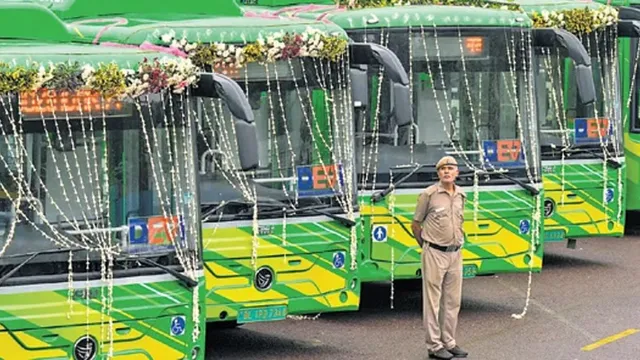- By Business Desk
- Tue, 19 Aug 2025 07:30 PM (IST)
- Source:JND
India's shift to electric vehicles is gaining momentum, pushed forward by government policies and commitments from industries such as logistics, e-commerce and last-mile delivery. But experts say the bigger challenge is not simply replacing fuel, it is managing electric fleets in a way that is efficient and reliable.
Ambitious targets underline the scale of the change. Under the EV30@30 campaign, India has committed to making 40 per cent of new bus sales electric by 2030, with 50,000 electric buses expected to be on the road by 2027. E-commerce companies are also setting goals to move entirely to electric vehicles for last-mile delivery within the same timeframe.
Globally, China remains the largest market, operating more than 670,000 electric buses, while European Union rules pushed over a third of new city bus sales into electric models last year. In California, a zero-emission vehicle mandate has already lifted EVs to nearly 8 per cent of new vehicle sales.
For fleet operators in India, the move to electric mobility is proving to be as much an operational challenge as it is an energy one. Without integrated systems, managers can struggle with poor visibility on charging infrastructure, unpredictable energy demand and difficulties in aligning routes with charging schedules. These gaps can lead to higher costs, missed deliveries and stranded vehicles.
"Electrifying a fleet is about far more than just installing chargers. It is about building an intelligent ecosystem that keeps vehicles moving with minimal downtime and maximum efficiency," said Akshay Shekhar, chief executive of Kazam, a company working on fleet and energy management solutions. He pointed to technologies such as real-time charging visibility, depot-level load management and AI-based charge tracking as tools that can help reduce costs and improve reliability.
Shekhar also believes that peer-to-peer energy sharing will play an important role in the transition. "By enabling operators to trade surplus solar power through smart, decentralised networks, we are building interoperable, renewable-integrated and grid-independent systems. This is not just about charging vehicles, it is about laying the foundation for India’s clean energy future," he said.
With electric vehicle penetration projected to reach 30 per cent by 2030, particularly in buses, two-wheelers and three-wheelers, analysts say daily operational planning is becoming central to the transition. Charging is increasingly viewed as a strategic function that determines efficiency, reliability and the long-term success of India’s electric mobility shift.

